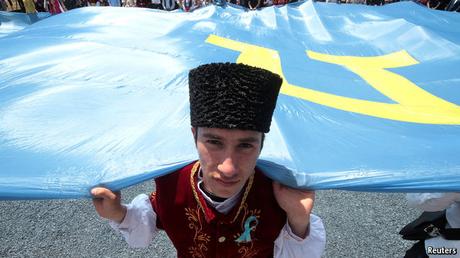 A Tatar’s courage never flags
A Tatar’s courage never flags ON May 14th Crimea’s indigenous Tatars sat glued to their screens, watching as Jamala, a Ukrainian singer of Tatar descent, won the Eurovision song contest. Jamala’s song “1944” commemorated Stalin’s brutal deportation of the entire Crimean Tatar population. For Russia’s government, the song was an infuriating breach of the contest’s ban on politics. For Tatars, it was a gesture of defiance. Most Tatars refuse to accept Russia’s annexation of the peninsula in 2014. As a result, they have been singled out for punishment.
In Crimea every Tatar family has stories of the deportation. Eighty-one-year-old Refat Selyamiev still clearly remembers May 18th, 1944, when Soviet soldiers came to his family’s house, led his mother and her three children out and brought them to a local cemetery. They expected to be murdered. Instead they, along with the rest of Crimea’s 200,000 Tatars, were taken to the train station, bundled into cattle cars and shipped to Uzbekistan. Stalin claimed the Tatars had collaborated with the Germans.
The trip took 18 days. Mr Selyamiev remembers the thirst,…

